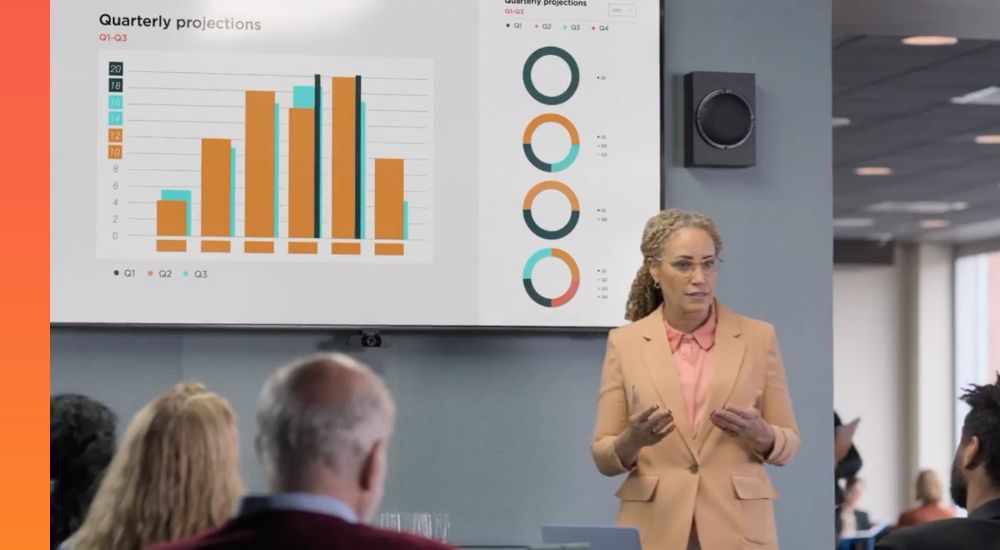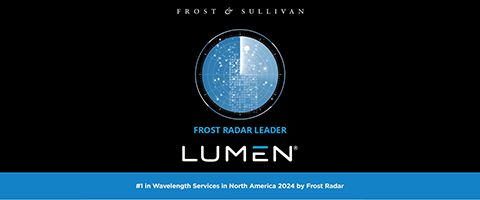

Seamlessly grow your business with Lumen technologies (1:00)
Customer stories
Learn how leading companies are innovating with Lumen enterprise technology solutions to help maximize application performance and availability, secure apps and data, and optimize IT investments.


Explore enterprise technology solutions
A staggering 86% of CIOs don’t think their enterprise networks are prepared for the AI revolution.2 Design a custom network architecture that helps give you the flexibility, scalability, collaboration and security needed to meet the demand of AI.
*Offer available to qualifying business customers purchasing new Lumen SASE service in eligible continental U.S. locations and requires a 36-month term agreement. Offer excludes connectivity, installation, optional add-ons, building extensions, taxes and fees which are all additional charges. Customer’s SASE NRC charge will be waived and customer will receive three service credits in the amount of the SASE monthly service charge, one each in the 1st, 12th and 24th months. Total credits cannot exceed $100,000. Early termination fees will apply as set forth in customer’s agreement. Customer must remain in good standing and rate may terminate if customer changes their account in any manner including, but not limited to, their service location. Services not available everywhere. Lumen may change, cancel, or substitute offers and services, or vary them by service area at its sole discretion without notice. Credit approval and deposit may be required. Offer may not be combined with other offers. Additional restrictions, terms and conditions apply.
What others are saying
Featured offers
Integrate, accelerate and protect your applications and users with business technology solutions designed for growth and innovation.
*The Internet On‑Demand Networking Offer Qualification Form must be submitted between April 23 and May 31, 2025. Offer is available to qualifying new Network‑as‑a‑Service (NaaS) business customers purchasing one new Lumen UNI port and Internet On‑Demand services in one eligible continental U.S. on‑net location and requires a 36‑month UNI port term agreement. Customer must order the new UNI port (1 Gbps or 10 Gbps) at a qualified service location within two (2) weeks of submitting the Internet On‑Demand Networking Offer Qualification Form and must activate Internet On‑Demand service within 30 days of UNI port installation. Customer will receive two separate service credits, one in the 4th month and one in the 7th month after UNI port billing commencement. Each credit will be capped at the lesser of $6,000 or 50% of the eligible monthly service charges for the preceding three months. Offer excludes 1 Mbps Internet On‑Demand service, taxes, fees and optional add‑ons, which are all additional charges. Early termination fees will apply to the UNI port as set forth in customer’s service agreement. Customer must remain in good standing and offer may terminate if customer changes their account in any manner including, but not limited to, their service location. Services not available everywhere. Lumen may change, cancel, or substitute offers and services, or vary them by service area at its sole discretion without notice. Credit approval and deposit may be required. Offer may not be combined with other offers. Additional restrictions, eligibility requirements, terms and conditions apply.
**Positive Business Outcome Program available for a limited time to qualifying customers purchasing eligible new services with a 36-month term agreement. Service credits will be issued in the amount of the Monthly Recurring Charges (MRC) for a single month associated with the eligible installed service. Taxes, fees, surcharges, non-recurring charges, and/or usage charges are not included. Customer is eligible for MRC credits issued over the term of the agreement if the eligible installed service does not improve customer’s business in a measurable way, subject to certain time frames as defined in the Program terms. Customer must contact Customer Service and provide a written request with sufficient detail to identify the business outcome measurement(s). If customer terminates or downgrades service early, customer will pay early termination fees as set forth in customer’s agreement plus an amount equal to any service credits received under this program. Service and offer may not be available everywhere. Lumen may change, cancel or substitute offers and services, or vary them by service area at its sole discretion without notice. Credit approval and deposit may be required. Offer may not be combined with other offers. Additional restrictions, terms and conditions apply.
***Available to new DDoS Mitigation customers. Limitations apply.
What's new from Lumen
1~25% less fiber optic loss per km; less loss translates to less frequent need for fiber optic signal regeneration, decreasing equipment costs; figure is based on a comparison to vintage 2000 fiber (decrease from .22 db/km loss to.17 db/km).
2IDC, Enterprise Horizons 2024, June 2024.
































